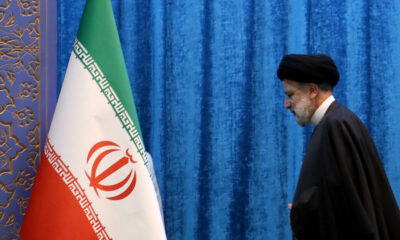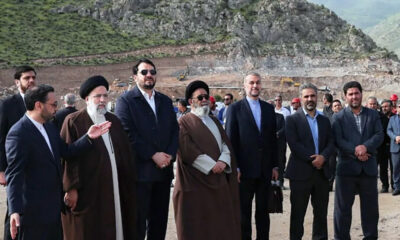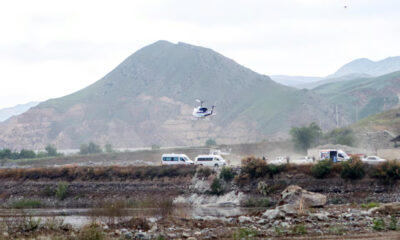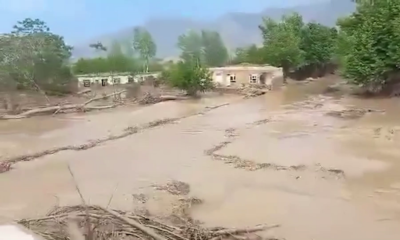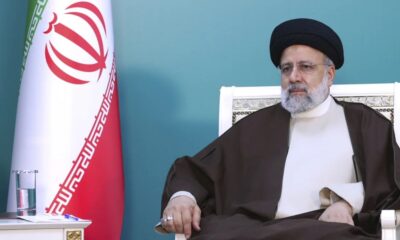World
Biden says US will withhold weapons from Israel if it invades Rafah

President Joe Biden on Wednesday publicly warned Israel for the first time that the U.S. would stop supplying it weapons if Israeli forces make a major invasion of Rafah, a refugee-packed city in southern Gaza, Reuters reported.
“I made it clear that if they go into Rafah …, I’m not supplying the weapons that have been used historically to deal with Rafah, to deal with the cities – that deal with that problem,” Biden said in an interview with CNN.
Biden’s comments represent his strongest public language to date in his effort to deter an Israeli assault on Rafah while underscoring a growing rift between the U.S. and its strongest ally in the Middle East.
Biden acknowledged U.S. weapons have been used by Israel to kill civilians in Gaza, where Israel has mounted a seven-month-old offensive aimed at annihilating Hamas. Israel’s campaign has so far killed 34,789 Palestinians, mostly civilians, the Gaza Health Ministry said.
“Civilians have been killed in Gaza as a consequence of those bombs and other ways in which they go after population centers,” he said when asked about 2,000-pound bombs sent to Israel.
A senior U.S. official, speaking on condition of anonymity, said Washington had carefully reviewed the delivery of weapons that might be used in Rafah and as a result paused a shipment consisting of 1,800 2,000-pound (907-kg) bombs and 1,700 500-pound bombs.
Israel’s U.N. ambassador, Gilad Erdan, earlier this week called Washington’s decision to delay shipments “very disappointing” although he did not believe the U.S. would stop supplying arms to Israel.
Israel this week attacked Rafah, where more than one million Palestinians have sought refuge, but Biden said he did not consider Israel’s strikes a full-scale invasion because they have not struck “population centers.”
The interview was released hours after Defense Secretary Lloyd J. Austin III acknowledged publicly Biden’s decision last week to hold up the delivery of thousands of heavy bombs was taken out of concern for Rafah, where Washington opposes a major Israeli invasion without civilian safeguards, read the report.
Israel’s campaign in Gaza was triggered by Hamas ‘ Oct. 7 attack on Israel. That killed about 1,200 people with about 250 others abducted, of whom 133 are believed to remain in captivity in Gaza, according to Israeli tallies.
The United States is by far the biggest supplier of weapons to Israel, and it accelerated deliveries after the Oct. 7 Hamas-led attacks, Reuters reported.
In 2016, the U.S. and Israeli governments signed a third 10-year Memorandum of Understanding that provides $38 billion in military aid over the 10 years, $33 billion in grants to buy military equipment and $5 billion for missile defense system. Last month, congress approved $26 billion in additional funding for Israel.
Biden said the U.S. would continue to provide defensive weapons to Israel, including for its Iron Dome air defense system.
“We’re going to continue to make sure Israel is secure in terms of Iron Dome and their ability to respond to attacks that came out of the Middle East recently,” he said. “But it’s, it’s just wrong. We’re not going to – we’re not going to supply the weapons and artillery shells.”
World
Reactions to the death of Iran’s president in a helicopter crash
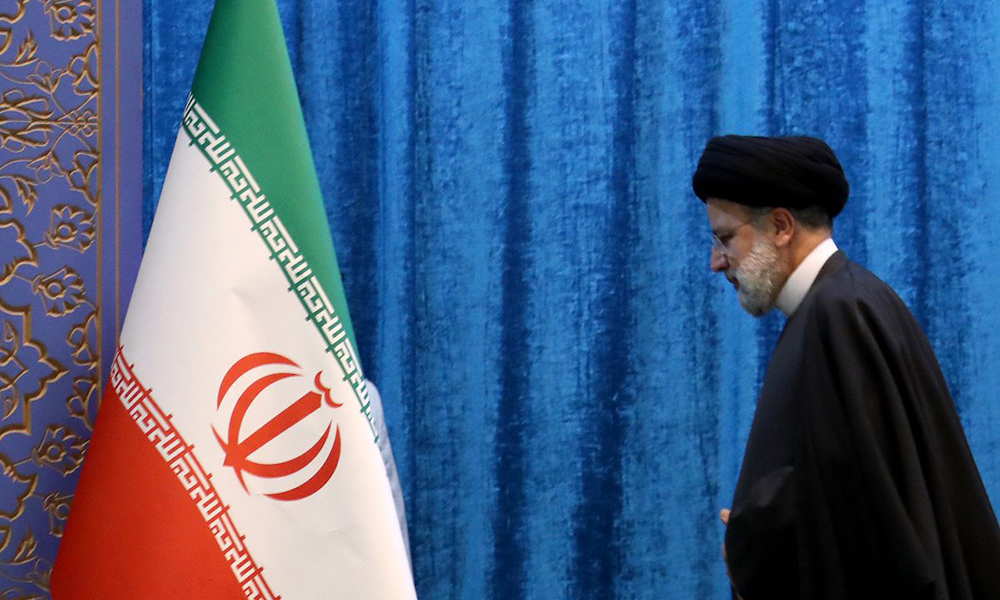
Iranian President Ebrahim Raisi, a hardliner long seen as a potential successor to Supreme Leader Ayatollah Ali Khamenei, was killed in a helicopter crash in mountainous terrain near the Azerbaijan border, Reuters quoted officials and state media said on Monday.
The following are reactions to the news:
HAMAS STATEMENT:
The statement conveyed Hamas’ “deepest condolences and solidarity” to Iran’s Supreme Leader Ali Khamenei, the Iranian government, and the Iranian people for “this immense loss.”
It praised the deceased Iranian leaders for supporting the Palestinian cause and resistance against Israel and expressed confidence that Iran’s “deep-rooted institutions” will enable it to overcome “the repercussions of this great loss.”
MOHAMMED ALI AL-HOUTHI, HEAD OF YEMEN’S HOUTHI SUPREME REVOLUTIONARY COMMITTEE, ON X, FORMERLY TWITTER:
“Our deepest condolences to the Iranian people, the Iranian leadership, and the families of President Raisi and the accompanying delegation on their reported martyrdom. We ask God to grant their families patience and solace. Verily we belong to Allah and to Him we shall return. The Iranian people will remain adhering to the loyal leaders of their people, by God’s will.”
INDIAN PRIME MINISTER NARENDRA MODI ON X, FORMERLY TWITTER:
“Deeply saddened and shocked by the tragic demise of Dr. Seyed Ebrahim Raisi, President of the Islamic Republic of Iran. His contribution to strengthening India-Iran bilateral relationship will always be remembered. My heartfelt condolences to his family and the people of Iran. India stands with Iran in this time of sorrow.”
World
Saudi crown prince, US national security adviser meet on Gaza, bilateral deal
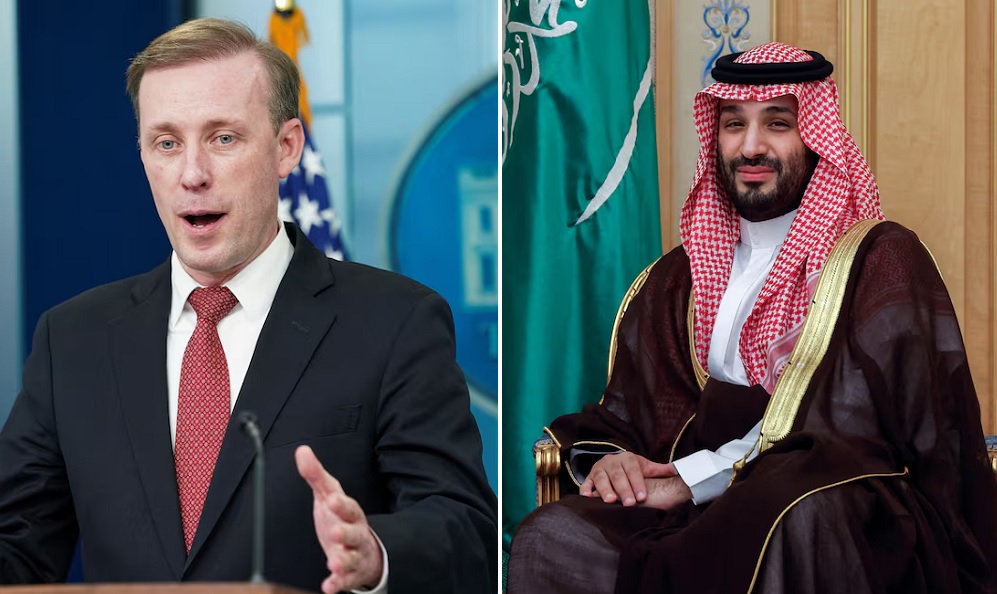
Saudi Crown Prince Mohammed bin Salman and White House National Security Adviser Jake Sullivan met to discuss a broad bilateral agreement and Israel’s war in Gaza, the Saudi state news agency reported on Sunday.
The meeting in the Saudi city of Dhahran reviewed “the semi-final version of the draft strategic agreements between the two countries, which are almost being finalised,” a statement read.
Washington and Riyadh have been discussing U.S. security guarantees and civilian nuclear assistance as part of a broader deal that the U.S. hopes would lead to normalising Saudi-Israeli relations.
The de facto Saudi leader and President Joe Biden’s top security aide also discussed the need to find a “credible track for bringing about the two-state solution” for Israel and the Palestinians, stop the war against Hamas militants in Gaza and facilitate the entry of humanitarian aid, the statement said.
The Biden administration and Saudi Arabia have been seeking to finalise the nuclear agreement, Reuters reported early this month, even as Israel-Saudi normalisation, part of a Middle East “grand bargain”, remains elusive.
The White House said on Friday that Sullivan would visit Saudi Arabia and Israel to discuss bilateral and regional matters, including Gaza and efforts to achieve lasting peace and security in the region.
Saudi Arabia, as the world’s largest oil exporter, is not an obvious candidate for a nuclear pact typically aimed at building power plants.
But the kingdom is seeking to generate substantial renewable energy and reduce emissions under an ambitious long-term plan, while critics say Riyadh might want nuclear expertise in case it someday wished to acquire nuclear weapons, despite safeguards enshrined in any deal with Washington to prevent this.
(Reuters)
World
Fierce fighting in northern Gaza as aid starts to roll off US-built pier

Israeli forces battled Hamas fighters in the narrow alleyways of Jabalia in northern Gaza on Friday in some of the fiercest engagements since they returned to the area a week ago, while in the south Hamas attacked tanks massing around Rafah.
Residents said Israeli armour had thrust as far as the market at the heart of Jabalia, the largest of Gaza’s eight historic refugee camps, and that bulldozers were demolishing homes and shops in the path of the advance, Reuters reported.
“Tanks and planes are wiping out residential districts and markets, shops, restaurants, everything. It is all happening before the one-eyed world,” Ayman Rajab, a resident of western Jabalia, said via a chat app.
Israel had said its forces cleared Jabalia months earlier in the Gaza war, triggered by the deadly Hamas-led attacks on southern Israel on Oct. 7, but said last week it was returning to prevent Hamas re-grouping there.
In southern Gaza bordering Egypt, thick smoke rose over Rafah, where an escalating Israeli assault has sent hundreds of thousands of people fleeing from what was one of the few remaining places of refuge.
“People are terrified and they’re trying to get away,” Jens Laerke, U.N. humanitarian office spokesperson, said in Geneva, adding that most were following orders to move north towards the coast but that there were no safe routes or destinations.
As the fighting raged, the U.S. military said trucks started moving aid ashore from a temporary pier, the first to reach the besieged enclave by sea in weeks.
The World Food Programme, which expects food, water, shelter and medical supplies to arrive through the floating dock, said the aid was transported to its warehouses in Deir Al Balah in central Gaza and told partners it was ready for distribution.
The United Nations earlier reiterated that truck convoys by land – disrupted this month by the assault on Rafah – were still the most efficient way of getting aid in.
“To stave off the horrors of famine, we must use the fastest and most obvious route to reach the people of Gaza – and for that, we need access by land now,” deputy U.N. spokesperson Farhan Haq said.
U.S. aid was arriving in Cyprus for delivery to Gaza via the new pier, Washington said.
Hamas demanded an end to Israel’s siege and accused Washington of complicity with an Israeli policy of “starvation and blockade”.
The White House said U.S. national security adviser Jake Sullivan would visit Israel on Sunday and stress the need for a targeted offensive against Hamas rather than a full-scale assault on Rafah.
A group of U.S. medical workers left the Gaza Strip after getting stuck at the hospital where they were providing care, the White House said.
HUMANITARIAN FEARS
The Israel Defense Forces said troops killed more than 60 militants in Jabalia in recent days and located a weapons warehouse in a “divisional-level offensive”.
A divisional operation would typically involve several brigades of thousands of troops each, making it one of the biggest of the war.
“The 7th Brigade’s fire control centre directed dozens of airstrikes, eliminated terrorists and destroyed terrorist infrastructure,” the IDF said.
At least 35,303 Palestinians have now been killed, according to figures from the enclave’s health ministry, while aid agencies have warned repeatedly of widespread hunger and dire shortages of fuel and medical supplies.
Israel says it must capture Rafah to destroy Hamas and ensure the country’s safety. In the Hamas attack on Oct. 7, 1,200 people died in Israel and 253 were taken hostage, according to Israeli tallies. About 128 hostages are still being held in Gaza.
Israel said on Friday that its forces retrieved the bodies of three people killed at the Nova music festival in Israel on Oct. 7 and taken into Gaza.
In response, Hamas said negotiations were the only way for Israel to retrieve hostages alive: “The enemy will not get its prisoners except as lifeless corpses or through an honourable exchange deal for our people and our resistance.”
Talks on a ceasefire have been at an impasse.
‘TRAGIC WAR’
Israeli tanks and warplanes bombarded parts of Rafah on Friday, while the armed wings of Hamas and Islamic Jihad said they fired anti-tank missiles and mortars at forces massing to the east, southeast and inside the Rafah border crossing with Egypt.
UNRWA, the main U.N. aid agency for Palestinians, said more than 630,000 people had fled Rafah since the offensive began on May 6.
“They’re moving to areas where there is no water – we’ve got to truck it in – and people aren’t getting enough food,” Sam Rose, director of planning at UNRWA, told Reuters on Friday by telephone from Rafah, where he said it was eerily quiet.
At the International Court of Justice, or World Court, in The Hague, where South Africa has accused Israel of violating the Genocide Convention, Israeli Justice Ministry official Gilad Noam defended the operation.
The South African legal team, which set out its case for fresh emergency measures the previous day, framed the Israeli military operation as part of a genocidal plan aimed at bringing about the destruction of the Palestinian people.
-
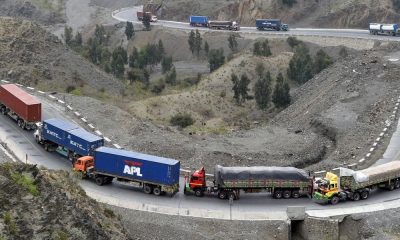
 Business5 days ago
Business5 days agoAfghanistan’s imports and exports totaled $10.3 billion last year
-
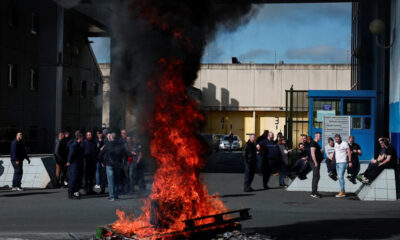
 World5 days ago
World5 days agoManhunt underway after gunmen ambush French prison van to free drug dealer
-
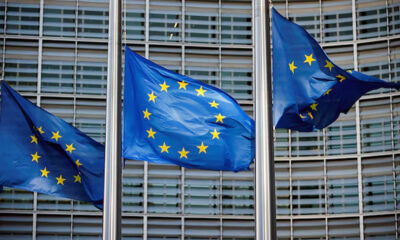
 World4 days ago
World4 days agoEU adds Russian media outlets to sanctions list despite Kremlin warning
-
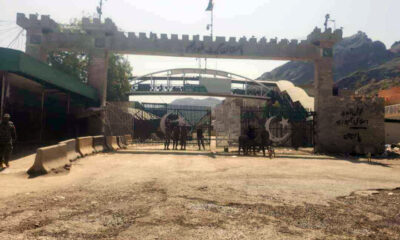
 Latest News4 days ago
Latest News4 days agoTorkham crossing closes temporarily to travelers
-

 Sport4 days ago
Sport4 days agoSorkh Poshan Khafi and Sarsabz Yashlar win in ACL matches
-

 Business4 days ago
Business4 days agoAzizi meets with head of Tatarstan on sidelines of Kazan Forum
-

 Latest News4 days ago
Latest News4 days agoJapan pledges emergency aid to Afghanistan’s flood victims
-
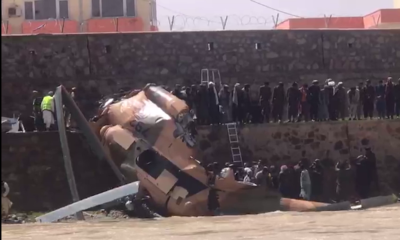
 Latest News5 days ago
Latest News5 days agoMinistry of Defense confirms one dead, 12 injured in chopper crash in Ghor


